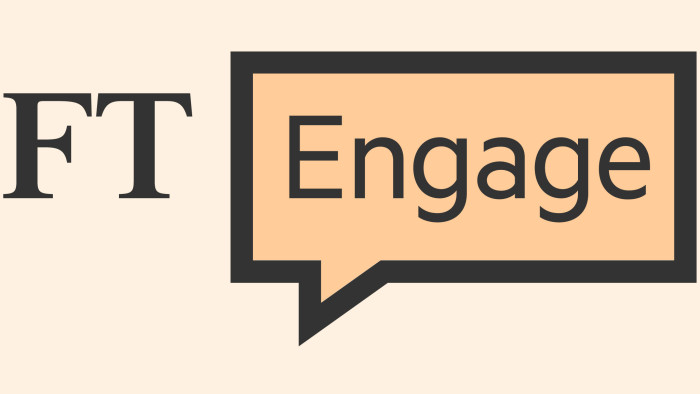US election guide to prediction markets and bets

Roula Khalaf, Editor of the FT, selects her favourite stories in this weekly newsletter.
Politics, particularly elections, pose a problem for markets. Political votes can have huge impacts on the economy but markets are not well equipped to deal with them.
Outcomes are often binary, depriving investors of the chance to spread risks by diversification. In the case of the UK referendum on leaving the European Union earlier this year, it was obvious that the value of the pound would fall with a Leave majority; similarly, if Donald Trump wins the US presidential election next month, the value of the Mexican peso will instantaneously fall. There is no middle ground. Such situations are a nightmare for risk managers.
A history of betting
To deal with this, markets betting on political outcomes have existed for more than a century. According to the University of Michigan economist Justin Wolfers, who has researched the history of prediction markets, there are records of election betting in Wall Street going back to 1884.
There is real money at stake with one study estimating that average betting turnover per US presidential election is equivalent to over 50 per cent of the campaign spend.
A range of markets offer the chance to predict the US election market. PredictWise.com synthesises prices from several markets, and finds Hillary Clinton’s chance of victory to be about 90 per cent at present — although the chance that she will have a Democratic majority in the House of Representatives to work with is only 16 per cent.
If the prediction markets are right, Mrs Clinton’s chances started this month at only 68 per cent, so the campaign drama of the last few weeks has had a big impact.
How do prediction markets work?
The simplest way to run a political market is to structure a futures contract that pays 100 cents on the dollar if your predicted outcome happens, and zero if it does not. So, for example, if a Clinton-for-president contract is trading for 80 cents, that means the market puts an 80 per cent probability on her being elected. If you think this is too high, you can sell it short, and bet that her perceived chances will fall, or buy a Donald Trump future, which in a well-run market will be trading at 20 cents.
But as in financial markets, the borders between hedging, speculating and gambling can blur.
The success of prediction markets, pre-Brexit, was extraordinary. Intrade and the Iowa Electronic Markets, the longest established online market, run by the University of Iowa, correctly called the winner of the electoral college vote correctly in all 50 states in the very close 2004 election between George W Bush and John Kerry.

Over history, according to Mr Wolfers, prediction markets perform better than the Gallup poll, which is much more expensive to compile. Their average error on presidential elections is 1.4 per cent: the equivalent number for Gallup is more than 2 per cent.
However, virtually every marketplace that offered a contract on the Brexit referendum saw Remain as the likely victor. None put the chance at zero, so they were not technically wrong, but the weight of expectation was plainly wrong. What are the problems?
Bias
One is that prediction markets are prone to the biases of their participants, if they are pervasive. Unconscious racism is one example. Mr Wolfers tested the theory that sports prediction markets persistently underestimate the chances of baseball teams with more African-American players, and found that their contracts did indeed tend to be cheap. Betters on predominantly African-American teams tended to make bigger profits, showing that the market as a whole had underestimated their chances.

This might help explain the Brexit debacle. UK financial markets are concentrated in London, where sentiment towards the EU was very different from much of the rest of the country. Many Londoners thought it obvious that the rest of the country would come around to staying in the EU.
Special report

How getting the timing right on US presidents pays for investors
Can investors trust pollsters after Brexit?
Markets keep keen eye on presidential race
Philip Tetlock, an expert on political predictions at the University of Pennsylvania’s Wharton School, said the experts buying and selling in the market that he had organised “were socially far removed from modal Brexit voters”. That raised the risk of projection or false consensus — “no one I know thinks that way, so few people probably do”. His Good Judgment project, a market which allows for predictions and also offers participants the chance to argue with each other online, and had been very successful, had put the chances of Brexit at 25 per cent.
As Mr Tetlock put it, Brexit was “a useful chastening experience for the prediction community”.
How money weighs in
Another problem with prediction markets is that they are not a voting machine, they are a weighing machine — unlike a vote in a democracy, your bet is worth more if you put more money behind it. That can create weaknesses.
In the days before the UK referendum, far more money was bet on Remain than Leave, but more, smaller bets were placed on Leave. This may have been deliberate manipulation, or, as more likely, reflected the fact that those who thought Remain would win had more money.
Spread betting

Away from prediction markets, for retail investors the cheapest hedge may be to bet on market outcomes that would follow a political event using spread betting. This is a form of derivative market that also has strong similarities to a conventional bookmaker. The spread betting service offers the chance to to bet that a price (of an index or individual security) will rise or fall from its present level. To make money it keeps a spread.
Live event: Making sense of the US election

Join FT commentators in London on November 10 to discuss the state of US politics after the presidential election
For example, if sterling trades at $1.20, a spread might be from $1.205 to $1.195. A bet will be for a fixed amount per point — for example $1 for each 10th of a cent. So in this example, the spread itself is 10 points wide, and your initial shortfall is $10. A long bet on sterling will start to pay off once sterling exceeds $1.205. That bet will win $45 if the pound reaches $1.25, and lose $55 if it drops to $1.15.
One benefit enjoyed by both spread betting and prediction markets is that they usually lack “reflexivity” — the phenomenon whereby market changes can change the reality that they are supposed to reflect. The term was coined by the hedge fund manager George Soros to explain how big institutions piling into a currency or a bond can move its price. However, the price of a prediction market future should have no effect on a political candidate’s chances of winning a vote and, similarly, spread betting markets are separate from the underlying markets on which they are betting.
Brexit may have been an exception to the rule. Many noticed the shift in prediction markets towards predicting a Remain victory, and this helped moved sterling — even though the sums involved in prediction markets were far smaller than in forex.
Prediction markets now rate Mr Trump’s chances even lower than they ranked Brexit’s before the referendum. Could this conceivably help to lull Mrs Clinton’s supporters into staying at home on election day? If it does, Trump victory futures could make you rich — with his odds at 10 per cent, each future bought now would net you a profit of 900 per cent. That would be huge.
Comments